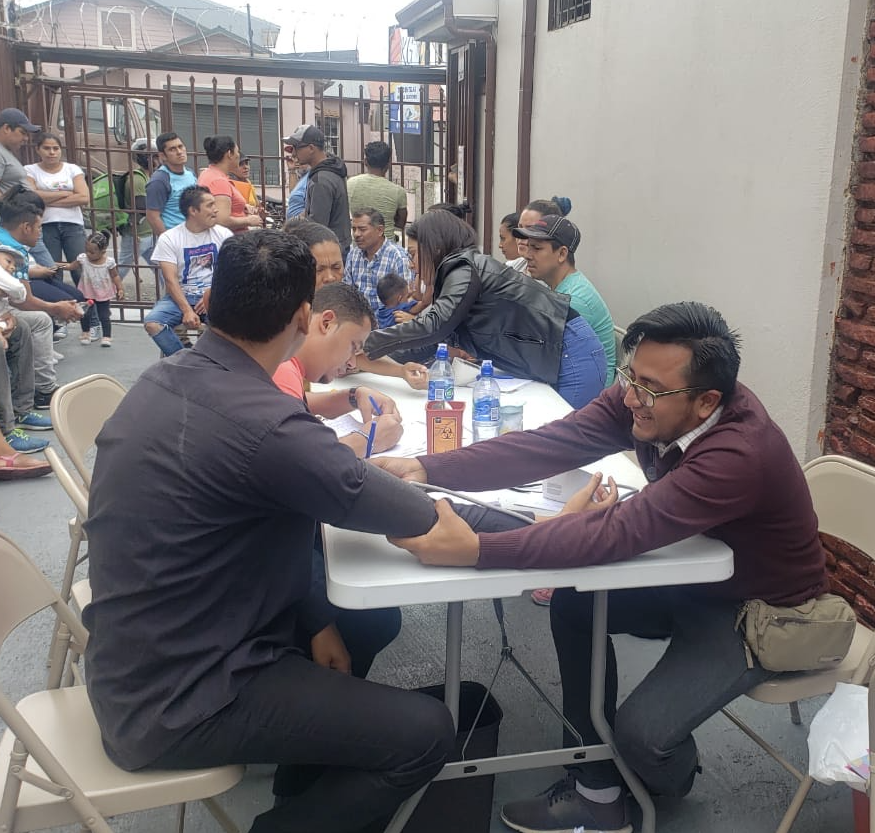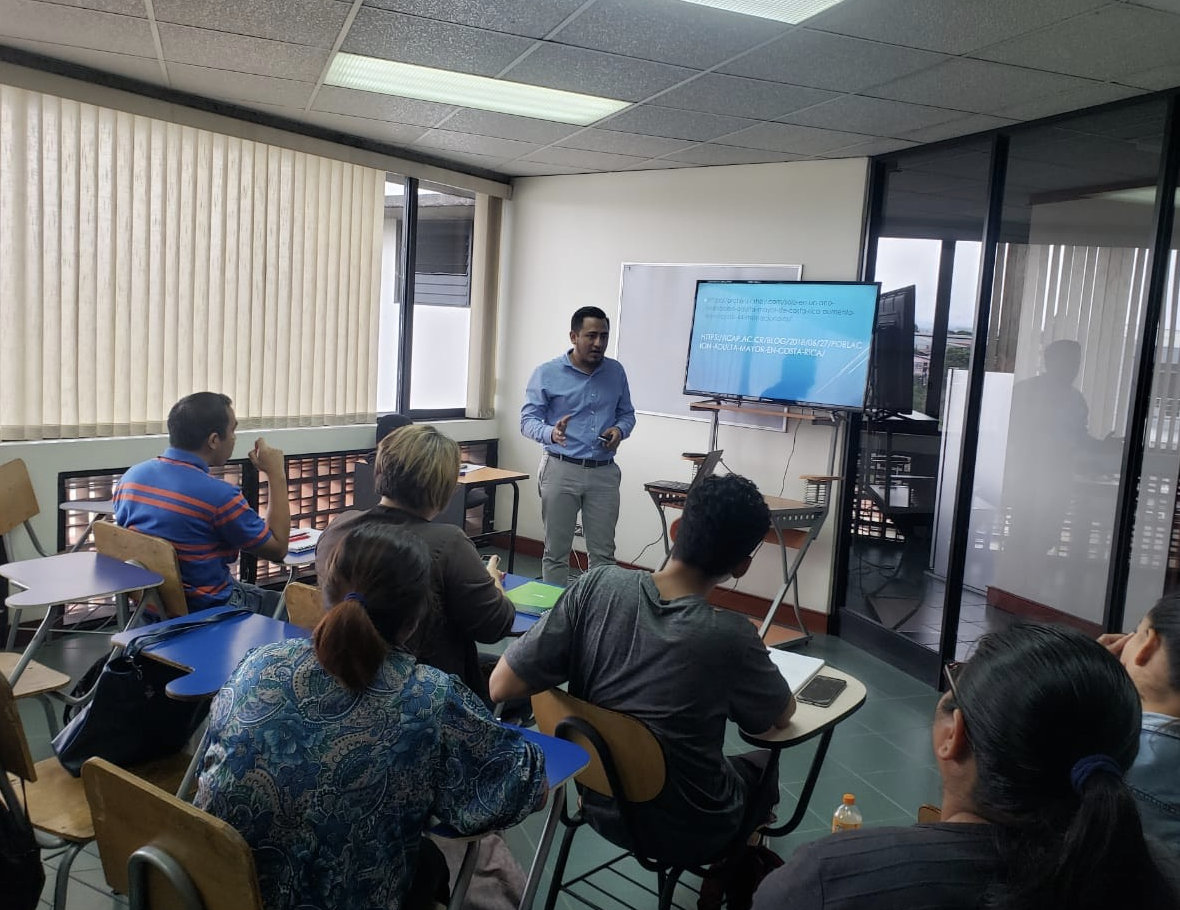The Nicaraguan Doctor Who Will
Exiled from Nicaragua and stripped of his medical degree, Hector is determined to regain his degree to help thousands of Nicaraguans
“My goal is to help other Nicaraguans as a doctor and teacher of medicine. If I can finally finish my studies in medicine and become a doctor I will be the best possible doctor to thousands of people. After becoming an excellent doctor, my goal is to start a medical school in my home region where there are no medical schools. All I want is to help my people,” says the Nicaraguan exile Hector (for the safety of Hector and his family, he asked we not use his real name).
Hector is one of many Nicaraguan doctors and medical students who fled Nicaragua after the beginning of violent government repression and societal conflict that began in 2018. In many cases, these doctors and medical students were forced to flee because they received death threats for giving medical treatment to members of the opposition who were wounded. Outside of Nicaragua, these doctors and medical students now find their certificates and education devalued or unrecognized.
Hector, who was in his final year of medical school in Nicaragua, now is in Costa Rica. His coursework and internship from Nicaragua are only partially recognized in Costa Rica. As such, to become a full doctor he must either pay 55,000 U.S. dollars for two years of school in Costa Rica as part of a required practicum or return to Nicaragua to finish his coursework. The first option is well beyond his financial means and the second option means death for him and possibly his family as well. (Click here to see how Hector is raising money for his education.)
Why Exile? The Context of Nicaragua
Since 2007, Nicaragua has been ruled by Daniel Ortega and his Sandista party. They have slowly strangled democracy in the nation through elections seen by many as rigged. Moreover, the Sandinista party controls the schools, universities and other government ministries. People are often promoted and accepted to university for loyalty to the party rather than for ability. “In the university, every professor we had was a loyal Sandinista. If you were not you could not teach there. Us students spent a lot of time at medical school learning about the Sandinista party’s history and doing Sandinista party activities like political marches. Like many, I just wanted to study medicine and leave the politics out. It was absurd,” said Hector.
Discontent with Sandinista rule came to a head in April 2018. First, there was a fire in the Reserva Indio Maiz in southeast Nicaragua. Conclusive evidence points toward government -- and thus Sandinista -- negligence and corruption as the cause.
Next, the government ordered a large reduction in retirement pensions. The two events, along with a dissatisfaction toward Sandinista rule for the erosion of democracy and corruption, brought Nicaraguans to the streets in large numbers to protest. The government met the protests with violence which served as gasoline on fire. The protests grew larger which only led to a more violent response.
Enter the Medical Students and Doctors
The universities were a focal point of the protests and the government’s subsequent violent response. In a flash, Hector and his classmates were transformed as front line first-responders.
Protesters wounded by the regime’s violent response were denied medical care in many Nicaraguan hospitals that were controlled by the regime. HJLG emotionally described how friends told him of wounded protesters dying because the hospital director, a Sandinista, ordered the surgeons to stop operating because the protester was anti-government. Doctors were threatened if they treated anti-regime organizers.
Hector, his classmates, and other doctors made a choice to help those denied care by the government. “I do not care what your politics are. If you need medical care, as a doctor I am going to help you [...] The regime politicized medicine and that should never happen,” Hector said.
These doctors and medical students created makeshift clinics throughout Nicaragua’s major cities. They also used Catholic cathedrals to treat patients. Although he studied at UNAN in the capital of Managua, (Universidad Nacional Autónoma de Nicaragua, or National Autonomous University of Nicaragua), Hector travelled between different cities outside the capital to help where he was needed. In the city of Masaya, he witnessed the point-blank murders by Sandinistas of multiple people. Others died while he was treating them in the makeshift clinics. Hector witnessed six total deaths in Masaya caused by gunshots. He knows the names of two, Junior Gaitan and Donald Lopez. Although he does not know the names of the other four, they “their faces will live in me forever,” he said as he held back tears.
Life in Costa Rica
Hector’s work helping wounded protesters ended his medical studies in Nicaragua. In April, as the protests started, professors in his university repeatedly reminded him that he was a student on scholarship. This served as a warning that he would lose his scholarship if he helped the protesters. The university ultimately expelled him for a “falta grave” (serious violation) without describing the serious violation. Hector assumes it is for helping the protesters.
Additionally, Hector and his family received multiple death threats. Hector decided, for the security of him and his family, to flee to neighboring Costa Rica. He arrived on August 2, 2018 with no plan beyond saving his life. He spent about two weeks sleeping in a park in the capital, San Jose. With the help of other Nicaraguans, Hector applied for papers to stay in Costa Rica.
Although he now has papers to stay in Costa Rica, it is a taxing existence. Costa Rica is one of the most expensive nations in Latin America. Moreover, the descrimination toward Nicaraguans is intense. According to Hector, many employers will not hire Nicaraguans and those that do will often pay less than minimum wage. When I visited Costa Rica in July 2018, multiple Costa Ricans told me that Nicaraguans only brought crime to the country.
Hector works whatever jobs he can get, including as an Uber driver, selling food on the street, and as an assistant in a Costa Rican doctor’s office. Although a medical professional himself, he mostly does administrative and cleaning tasks in the office.
The only opportunities Hector has to practice medicine are as a volunteer giving medical consultations to Nicaraguans in temporary clinics. As part of this, Hector also teaches young Nicaraguan exiles how to be medical assistants. Given the large Nicaraguan population in exile in Costa Rica, the demand for medical services and professionals is huge. Hector also works with an organization called Nicaragüenses en el Mundo y en el Exilio. This group of Nicaraguan doctors provides remote consults to Nicaraguans in Nicaragua who cannot receive medical treatment for COVID-19. Just like during the protests of 2018, the Sandinista regime routinely denies medical coverage to anyone deemed a political adversary. After giving remote consults, these doctors work with an extensive network of other volunteers to distribute prescribed medicine to their patients in Nicaragua.
Hector’s precarious economic situation in Costa Rica also means his family in Nicaragua suffers. Hector is the middle of six children and the only member of his family who has been to university. While a student in Managua, he sold food on the street and sent the money to his mother who struggles to survive on her income selling different products on the street. Moreover, as of August 2020 his mother has COVID-19 and cannot work.

An Investment in the Future of the Nicaraguan People
Although Hector’s situation is dire, he is unflappably positive. “What has happened has happened, and now I am focused on moving forward,” he said. “All I want is to help my family and my countrymen.” After finishing his degree in Costa Rica, Hector aims to become a surgeon. After years of practice as a surgeon, he wants to go back to his passion of teaching.
Hector’s passion for teaching is intertwined with a desire to help his home region. Hector’s home region always has a shortage of doctors and he wants to find a solution. As mentioned in the introduction, Hector’s long-term goal is to start the first medical school in his home region. “If people help me become a doctor, I do not want them to think of it as helping me. They are helping the thousands of Nicaraguan patients I will treat and the thousands of future Nicaraguan doctors I will teach who will then treat thousands of Nicaraguan patients.” This assumes he can safely return to Nicaragua. He and other Nicaraguans are confident that at some point the Ortega regime will fall and the reconstruction of the nation can start.
Before Hector can accomplish any of these long-term goals, however, he must finish his studies in Costa Rica which, as noted above, is prohibitively expensive. Hector’s only hope is in the goodwill of others who share his dream of helping thousands of Nicaraguans through his future efforts. Currently, there is a Go Fund Me campaign to help Hector achieve his goal.

